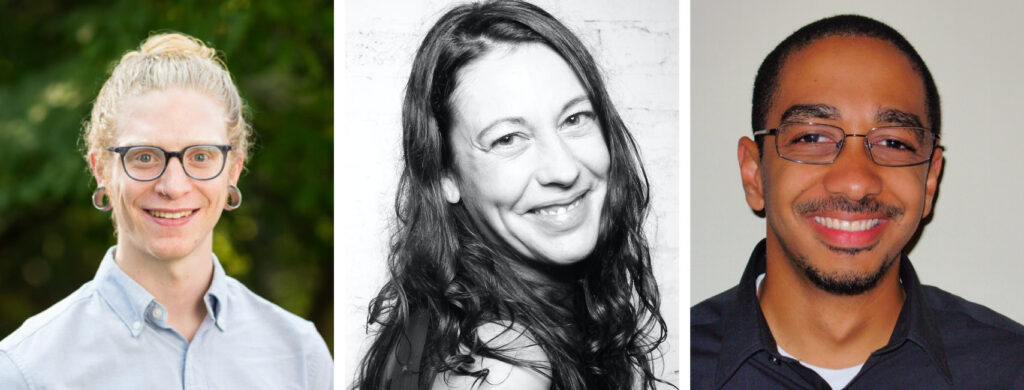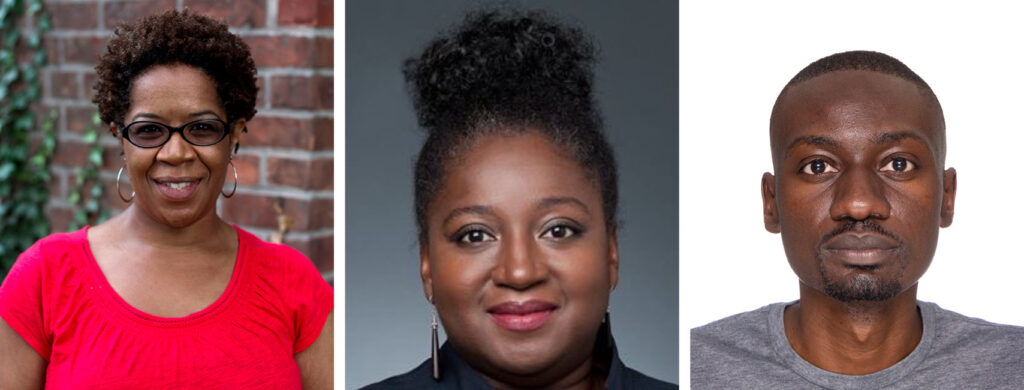FIFSW welcomes three new professors and three Provost’s Postdoctoral Fellows
Categories: FacultyWe are pleased to announce the appointment of three new dynamic and highly sought-after faculty members.
Dr. Kyle Ganson, PhD, joined FIFSW as an Assistant Professor effective July 1, 2020. Professor Ganson earned his PhD from Simmons University. He has over 7 years of post-MSW clinical practice experience working with adolescents and adults in a variety of mental health care settings. His practice has largely focused on individuals and families experiencing major mental health concerns, with a particular interest and expertise in eating disorders treatment.
Dr. Ashley Quinn, PhD, also joined us, effective July 1, 2020 as an Assistant Professor in Child Welfare and Indigenous Children, Families & Community. An FIFSW alumna, Professor Quinn is an Indigenous researcher and teacher whose focus includes the role of Indigenous culture and identity in the long-term developmental outcomes among children and youth in the child welfare system.
Dr. Harry Taylor, PhD, will join us as an Assistant Professor July 1, 2021 after completing his post-doctoral fellowship at Duke University. Professor Taylor earned his PhD at the Brown School at Washington University in St. Louis. His research addresses the prevalence, risk factors, and associative health outcomes of social isolation and loneliness among older adult Black Americans and informs risk assessments, intervention programs, and policies to mitigate the adverse health effects of isolation and loneliness.
We are also pleased to welcome three of the Provost’s Postdoctoral Fellows.
Dr. Lori A. Chambers is a social work scholar whose research interest include decolonized knowing, performance narrative methodologies, racialized women’s health, and activism in human service work. She produced, directed, and co-authored, “Because She Cares,” a spoken word play stemming from her doctoral research on AIDS service employment as (un)caring work for Black immigrant women living with HIV. Her post-doctoral research explores the use of performance storytelling to increase awareness and catalyze constructive dialogue around HIV-stigma and intersecting oppressions in AIDS service employment.
Dr. Notisha Massaquoi (MSW 1997) has been an enthusiastic advocate for advancements in Black women’s healthcare globally for more than 30 years. Many know her as the long-time Executive Director of Women’s Health in Women’s Hands Community Health Centre in Toronto Canada. Her early career in social services helped establish several organizations and programs which served the newly emerging African Communities in Canada, such as Africans in Partnership Against AIDS, The African Resource and Communications Centre and Harambe Centres Canada. Notisha currently serves as the Co-Chair of the Toronto Police Services Board Anti-Racism Advisory Panel and is a Board Trustee for the Centre for Addiction and Mental Health. She has also inspired many youth and students (including those at FIFSW) as both a teacher and mentor.
Kalonde Malama is a Zambian HIV researcher and recipient of the 2018 International AIDS Society’s Young Investigator Prize. He is a research associate at the Zambia-Emory HIV Research Project and a PhD candidate in Public Health at Aix-Marseille University in France. His current research employs epidemiological methods to develop an HIV risk profile for Zambian female sex workers and tailor HIV prevention interventions for this key population. Kalonde has managed service delivery and research projects for Zambian couples, including a virtual cohort of HIV discordant couples and a cluster randomised controlled trial for concordant HIV-negative couples. He has also consulted with various Ministries of Health in Southern Africa on enhancing the uptake of HIV counselling and testing services.
“We are thrilled to have Dr. Ganson, Dr. Quinn, Dr. Taylor, Dr. Chambers, Dr. Massaquoi and Mr. Malama join the FIFSW community,” says Dean Dexter Voisin. “Each brings new perspectives and expertise to the Faculty, which will help broaden our reach, enhance our teaching, challenge our assumptions, and deepen our understanding and ability to serve diverse communities. We are proud to be able to support their research and teaching.”

